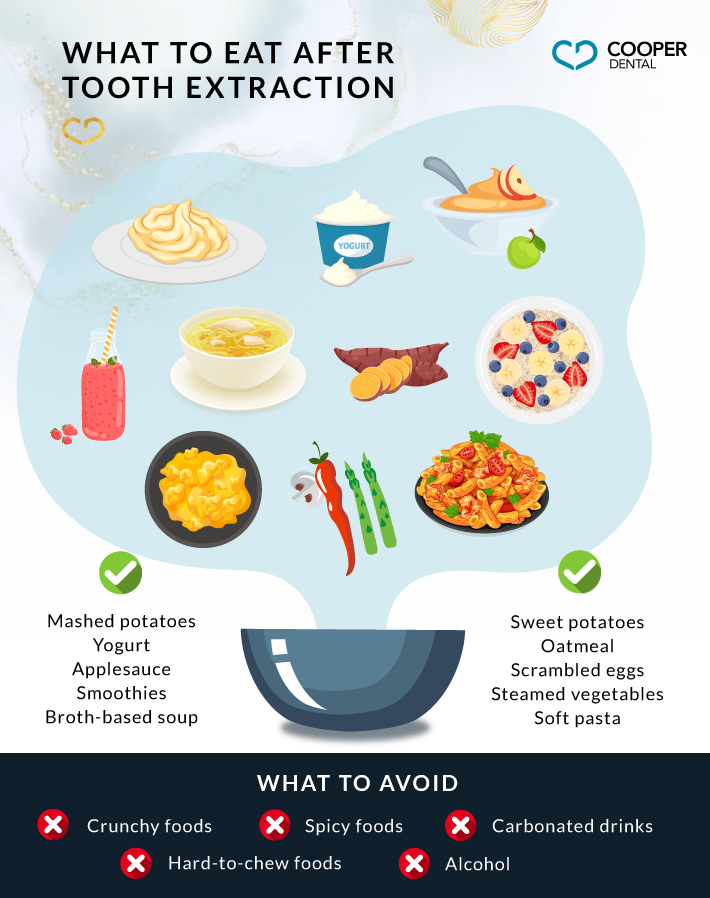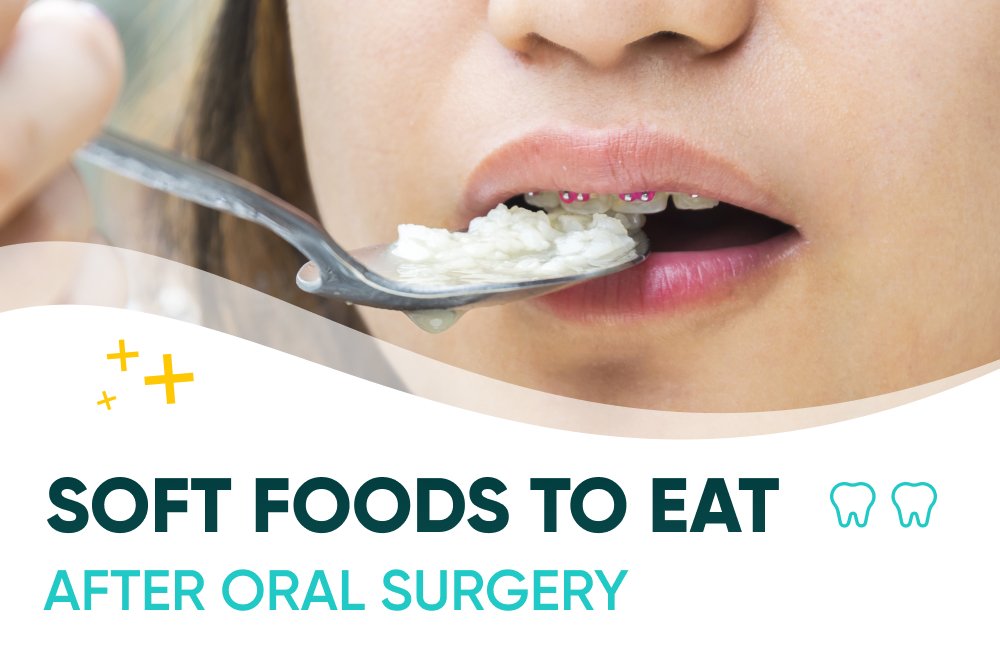Imagine this: you’ve just returned home after oral surgery, and all you can think about is how to nourish your body without causing any discomfort. The thought of eating hard, crunchy foods might make you cringe right now, but don’t worry—you’re not alone.
Navigating the world of post-surgery meals can seem daunting, but it doesn’t have to be. A soft food diet is your perfect ally during this recovery phase, offering delicious options that are gentle on your healing mouth. You’ll discover practical tips and tasty ideas for your soft food diet after oral surgery.
You’ll learn why it’s crucial for your recovery and how you can still enjoy satisfying meals without compromising your health. Ready to embark on this journey to healing and deliciousness? Keep reading to ensure your recovery is as smooth and enjoyable as possible!
Benefits Of A Soft Food Diet
Soft food diets offer comfort and promote healing after oral surgery. Easy-to-chew foods reduce pain and speed recovery. Nutrient-rich options like mashed potatoes or yogurt support overall health.
After oral surgery, your body needs the right foods to heal quickly and comfortably. A soft food diet isn’t just about avoiding pain; it offers several benefits that can support your recovery. Let’s dive into why this dietary choice can make a big difference in your healing journey.1. promotes Faster Healing
Soft foods are easier for your body to digest, allowing it to focus more energy on healing rather than breaking down complex foods. When I had my wisdom teeth removed, I noticed that sticking to mashed potatoes and smoothies helped me recover quicker. Have you considered how much energy your body uses for digestion? By choosing soft foods, you channel more energy into repairing tissues.2. reduces Discomfort And Pain
Chewing can be painful post-surgery, and hard foods might irritate sensitive areas. Soft foods like yogurt and applesauce are gentle on your healing gums and tissues. By opting for these choices, you minimize pain and make your meals an enjoyable experience rather than a dreaded chore.3. prevents Complications
Hard or crunchy foods can dislodge clots that form in the healing process, potentially leading to complications like dry socket. Imagine the set-back of a complication that could prolong recovery. Soft foods protect these clots, ensuring your mouth heals smoothly and reducing the risk of setbacks.4. nutrient-rich Options
Soft doesn’t mean boring or lacking in nutrients. Options like mashed avocados, scrambled eggs, and blended soups provide essential vitamins and minerals. How can you ensure a balanced diet while on a soft food regimen? Choose a variety of soft foods to meet your nutritional needs and support your body’s recovery.5. supports Overall Well-being
Maintaining your energy levels post-surgery is crucial. Soft foods can provide the carbohydrates, proteins, and fats your body needs without the discomfort of chewing. Have you found yourself feeling drained after surgery? The right diet can help boost your mood and energy, making recovery a more positive experience.
Credit: www.theeatbar.com
Foods To Include
After oral surgery, a soft food diet helps recovery. Eating the right foods promotes healing and minimizes discomfort. Choose nutritious, easy-to-chew options to support your health. Here are some foods to include in your diet.
High-protein Options
Protein aids in tissue repair and recovery. Consider soft scrambled eggs. They are gentle on the mouth. Blended bean soups offer nutrition and warmth. Well-cooked fish like salmon or cod is easy to chew. Tofu is versatile and soft, ideal for various meals.
Fruits And Vegetables
Fruits and vegetables are vital for vitamins and minerals. Mashed bananas are smooth and easy to digest. Applesauce provides fiber and sweetness. Cooked carrots and peas are soft and nutritious. Avocado is creamy and full of healthy fats.
Dairy Products
Dairy products offer calcium and protein. Yogurt is smooth and soothing. Cottage cheese is soft and packed with protein. Milk can be consumed plain or added to smoothies. Soft cheeses like ricotta or mozzarella are tasty and gentle.
Grains And Cereals
Grains and cereals give energy and fiber. Oatmeal is warm and easy to swallow. Soft bread without crusts can be enjoyed. Pasta, well-cooked, becomes tender and manageable. Rice is versatile and pairs with many soft foods.
Foods To Avoid
After oral surgery, choosing the right foods is crucial for recovery. Understanding what foods to avoid can prevent complications and promote healing. Eating the wrong foods might seem harmless but could lead to discomfort or even damage your recovery process. Let’s dive into what you should stay away from to ensure a smoother healing journey.
Hard And Crunchy Foods
Imagine biting into a crunchy apple or munching on a bowl of nuts. Sounds delightful, right? Unfortunately, these hard and crunchy foods are off-limits after oral surgery. They can apply pressure to sensitive areas, potentially causing pain or delaying healing. Instead, opt for foods that require minimal chewing and are gentle on your mouth.
Spicy And Acidic Foods
Spices and acidic ingredients can irritate your healing gums. Think about how a hot chili pepper or a tangy lemon might sting when it touches a sore spot. Your mouth is already sensitive; why add more discomfort? Stick to mild, soothing flavors that won’t aggravate your surgical sites.
Sticky And Chewy Foods
Ever tried to get sticky caramel or chewy candy off your teeth? It’s a struggle. These foods can cling to your teeth and gums, making it difficult to clean and potentially leading to infection. You need to maintain oral hygiene, so it’s best to avoid these sticky temptations. Choose foods that are easy to eat and won’t leave unwanted residue.
Have you ever thought about how a simple choice can affect your recovery? Consider how avoiding these foods might speed up your healing process and make your recovery more comfortable. What are you willing to do to ensure the best outcome for your oral health?

Credit: cooperdental.ca
Meal Planning Tips
Recovering from oral surgery can be a delicate process, especially when it comes to planning your meals. A soft food diet is essential to ensure comfort and promote healing. But how do you make sure you’re getting all the nutrients you need without sacrificing taste? Here are some practical tips for meal planning that will help you balance nutrition, simplify cooking, and manage portion sizes effectively.
Balancing Nutrition
Maintaining a balanced diet is crucial, even when you’re restricted to soft foods. You might be tempted to rely on mashed potatoes and pudding, but diversifying your meals is key. Include a variety of protein sources like yogurt and scrambled eggs to support tissue repair. Add vegetables like steamed carrots or pureed spinach for vitamins and minerals. Remember, a colorful plate often means a nutritious one.
Think about how you can incorporate different food groups. A smoothie with fruits, a bit of spinach, and Greek yogurt can be a nutritional powerhouse. What are some creative ways you can add variety to your soft food diet?
Easy Recipes And Ideas
Cooking doesn’t have to be a chore, especially when you’re recovering. Consider simple recipes that require minimal prep. A comforting bowl of oatmeal topped with bananas and honey can be a satisfying breakfast. Soups are also your friend; they are easy to make and can be packed with nutrients. Try blending cooked lentils with some vegetable broth for a hearty meal.
Have you tried whipping up a batch of homemade applesauce? It’s surprisingly easy and can be a delightful treat. What other simple recipes can you try to add some excitement to your meals?
Portion Control
After oral surgery, your appetite might fluctuate. It’s important to listen to your body and adjust portions accordingly. Eating smaller, more frequent meals can help maintain energy levels and prevent discomfort. Aim to fill half your plate with soft vegetables, a quarter with protein, and a quarter with grains.
Using smaller plates can trick your brain into feeling satisfied with less food. Have you ever noticed how your perception of portion size changes with plate size? Keep track of your portions and see if it helps with recovery.
Hydration And Beverages
Staying hydrated is crucial after oral surgery. Proper hydration speeds up recovery and reduces discomfort. Beverages play a significant role in maintaining hydration. Choosing the right drinks is essential for healing. Some beverages soothe while others might irritate.
Recommended Drinks
Water is the best choice. It keeps your body hydrated and supports healing. Herbal teas are another excellent option. Chamomile or peppermint tea can be soothing. Smoothies made with soft fruits are nourishing. Ensure they are not too thick or cold. Coconut water provides electrolytes and hydration. It’s also gentle on the mouth.
What To Avoid
Avoid citrus drinks. They might irritate sensitive areas. Acidic beverages like orange juice can cause discomfort. Carbonated drinks are not recommended. They can cause pain and swelling. Alcohol should be avoided as well. It can interfere with healing and medication. Hot drinks might cause discomfort. Stick to lukewarm or room temperature beverages.

Credit: nohofamilydental.com
Managing Discomfort
Recovering from oral surgery often involves a soft food diet to ease discomfort and promote healing. Opt for mashed potatoes, yogurt, and smoothies to ensure nutrition while soothing sensitive areas. These choices help maintain energy levels without straining the healing process.
Recovering from oral surgery can be a challenging experience, especially when it comes to managing discomfort. While the body heals, you might feel some pain or tenderness in your mouth, making eating and daily activities a bit challenging. The good news is, with the right approach, you can effectively manage this discomfort and ensure a smoother recovery process. ###Pain Relief Tips
To ease the pain after oral surgery, it’s essential to have a few strategies up your sleeve. Cold compresses can be your best friend during these times. Applying an ice pack to the outside of your cheek in 15-minute intervals can significantly reduce swelling and numb the area. Over-the-counter pain relievers are also a great help. Medications like ibuprofen or acetaminophen can alleviate discomfort. Always follow your doctor’s instructions on dosage and frequency. Don’t underestimate the power of rest. Giving your body ample time to heal is crucial. Avoid strenuous activities and take short naps throughout the day to aid recovery. ###Signs To Watch For
While a certain level of discomfort is expected, it’s important to know when something might be wrong. If you notice increased swelling that doesn’t subside, it could be a sign of an infection. Persistent bleeding is another red flag. If bleeding continues beyond the first day, reach out to your dentist or surgeon for advice. Elevated fever and chills are also concerning symptoms. They might indicate an underlying issue that needs medical attention. Never hesitate to consult your healthcare provider if you’re unsure about any symptoms. Have you ever found yourself ignoring a symptom, only to realize later it needed attention? Staying vigilant can prevent complications and ensure a faster recovery. Remember, your health should always be your top priority.When To Transition Back To Regular Foods
After oral surgery, a soft food diet aids healing and comfort. But, knowing when to transition back to regular foods is crucial. This process varies based on individual recovery rates and the type of surgery. Careful monitoring and gradual steps ensure a safe return to your usual diet.
Monitoring Recovery
Observe your healing progress daily. Look for signs like reduced pain and swelling. Consult your dentist or oral surgeon for personalized advice. They can check your healing and guide your diet transition. Maintain good oral hygiene to prevent infections.
Gradual Reintroduction
Start with soft, easy-to-chew foods. Try scrambled eggs, soft pasta, or mashed potatoes. Avoid hard, crunchy, or sticky foods initially. Slowly introduce more textured foods as comfort improves. Listen to your body. If discomfort arises, revert to softer foods.
Frequently Asked Questions
What Foods Are Safe To Eat After Oral Surgery?
After oral surgery, choose soft foods that are easy to chew. Opt for mashed potatoes, yogurt, smoothies, and scrambled eggs. Avoid hard, crunchy, or spicy foods as they may irritate healing tissues. Gradually reintroduce solid foods as comfort improves and healing progresses.
How Long Should I Follow A Soft Food Diet?
Follow a soft food diet for about one to two weeks. Healing time varies based on the type of oral surgery. Consult your dentist or surgeon for specific recommendations. Transition back to regular foods gradually, ensuring comfort and avoiding irritation.
Can I Eat Ice Cream After Oral Surgery?
Yes, ice cream is a great soft food option post-surgery. It provides comfort and is easy to consume. However, avoid flavors with nuts or hard pieces. Opt for smooth, creamy varieties and eat in moderation to avoid excessive sugar intake.
Are Smoothies Recommended After Oral Surgery?
Smoothies are an excellent choice after oral surgery. They are nutrient-rich and easy to swallow. Ensure they are made with soft fruits and yogurt. Avoid using straws, as suction can interfere with healing. Incorporate protein for balanced nutrition during recovery.
Conclusion
A soft food diet helps recovery after oral surgery. Eating soft foods reduces discomfort and speeds healing. Choose foods like yogurt, mashed potatoes, and smoothies. Avoid crunchy or spicy items that may irritate your mouth. Drink plenty of water to stay hydrated and aid recovery.
Listen to your body and adjust your diet as needed. Consult your dentist for specific advice tailored to your needs. Remember, your comfort and health come first. A gentle approach to eating supports a smooth recovery. Stay patient, and you’ll be back to normal soon.
{ “@context”: “https://schema.org”, “@type”: “FAQPage”, “mainEntity”: [ { “@type”: “Question”, “name”: “What foods are safe to eat after oral surgery?”, “acceptedAnswer”: { “@type”: “Answer”, “text”: “After oral surgery, choose soft foods that are easy to chew. Opt for mashed potatoes, yogurt, smoothies, and scrambled eggs. Avoid hard, crunchy, or spicy foods as they may irritate healing tissues. Gradually reintroduce solid foods as comfort improves and healing progresses.” } } , { “@type”: “Question”, “name”: “How long should I follow a soft food diet?”, “acceptedAnswer”: { “@type”: “Answer”, “text”: “Follow a soft food diet for about one to two weeks. Healing time varies based on the type of oral surgery. Consult your dentist or surgeon for specific recommendations. Transition back to regular foods gradually, ensuring comfort and avoiding irritation.” } } , { “@type”: “Question”, “name”: “Can I eat ice cream after oral surgery?”, “acceptedAnswer”: { “@type”: “Answer”, “text”: “Yes, ice cream is a great soft food option post-surgery. It provides comfort and is easy to consume. However, avoid flavors with nuts or hard pieces. Opt for smooth, creamy varieties and eat in moderation to avoid excessive sugar intake.” } } , { “@type”: “Question”, “name”: “Are smoothies recommended after oral surgery?”, “acceptedAnswer”: { “@type”: “Answer”, “text”: “Smoothies are an excellent choice after oral surgery. They are nutrient-rich and easy to swallow. Ensure they are made with soft fruits and yogurt. Avoid using straws, as suction can interfere with healing. Incorporate protein for balanced nutrition during recovery.” } } ] }
